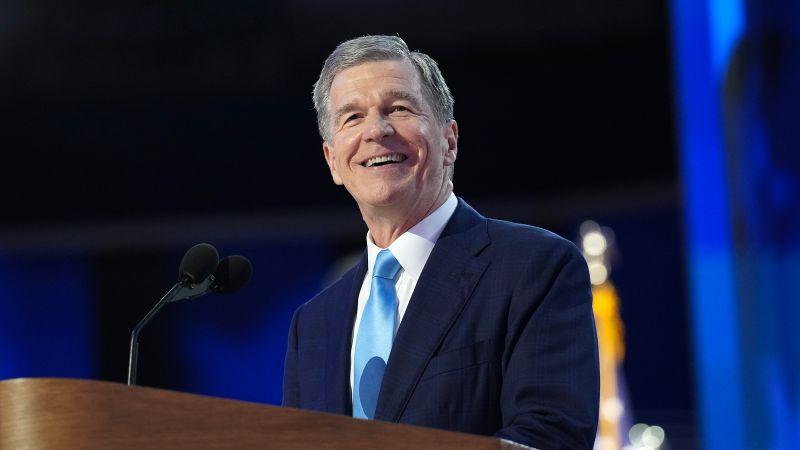The political landscape in North Carolina is poised for a significant shift as Democrats anticipate the entry of former Governor Roy Cooper into the Senate race next week. According to multiple sources, Cooper, who completed an eight-year term as governor at the end of 2024, is preparing to announce his candidacy. His stature as a popular figure in North Carolina politics, coupled with a flawless electoral record spanning over three decades, makes him a formidable contender for the seat.
Roy Cooper’s impressive political history includes successful campaigns for state Senate, attorney general, and governor. Notably, he has won elections in years when Republicans overperformed in presidential contests—a testament to his cross-party appeal. As Cooper gears up for this next chapter in his political career, many eyes are on him to see how he will address issues pertinent to both the state and the nation as a whole. An official announcement regarding his candidacy is anticipated in the near future, fueling excitement among Democratic supporters and strategists.
The North Carolina Senate race is viewed as a critical opportunity for Democrats to flip a Republican-held seat. Current Republican Senator Thom Tillis recently announced that he would not seek a third term. This decision comes amidst mounting criticism from former President Donald Trump, particularly following Tillis’s divergence from Trump’s stance on a recent Republican policy bill that stirred controversy. Without Tillis in the race, the Republican Party faces the challenge of finding a replacement candidate capable of winning the seat in an increasingly competitive political climate.
The news of Cooper’s impending entry into the race was initially reported by Axios. Although his political adviser, Morgan Jackson, refrained from confirming the details, he indicated that Cooper’s intentions would be publicly revealed shortly. This decision comes as anticipation builds for Cooper to engage with the state’s Democratic base, particularly at the upcoming Democratic Unity Dinner, a pivotal fundraising event slated for Saturday in Raleigh. It has been confirmed, however, that Cooper will not formally announce his candidacy at this event.
Another candidate already in the race is Wiley Nickel, a former Democratic congressman who has begun to establish his presence in the Senate campaign arena. With Nickel actively pursuing the nomination, the dynamics of the race could shift as Cooper officially enters. The stakes are particularly high for the Democratic Party, as they aim to consolidate support and resources to maximize their chances in a competitive election.
Meanwhile, Republicans are busy seeking a viable candidate to fill the void left by Tillis. A prominent potential contender is Lara Trump, the daughter-in-law of former President Donald Trump and a native of North Carolina. Although she currently resides in Florida, her ties to the state and the Trump brand could play a vital role in rallying Republican support in the upcoming campaign.
In a broader context, Cooper has previously been sought after as a Senate candidate but opted out of various recruitment efforts, including being considered as a potential running mate for Vice President Kamala Harris last year. His decision to now pursue a Senate seat reflects evolving dynamics within the party and the strategic importance of North Carolina in national elections.
As Cooper prepares to launch his Senate campaign, the situation remains fluid, and further developments are expected in the coming days. Observers are keenly watching this race unfold, as it could significantly impact the balance of power in the Senate. The landscape leading into the 2024 elections is shaping up to be complex and highly contested—keeping both party affiliates and constituents engaged in a crucial political discourse.
This is a developing story and will be updated as new information becomes available.











